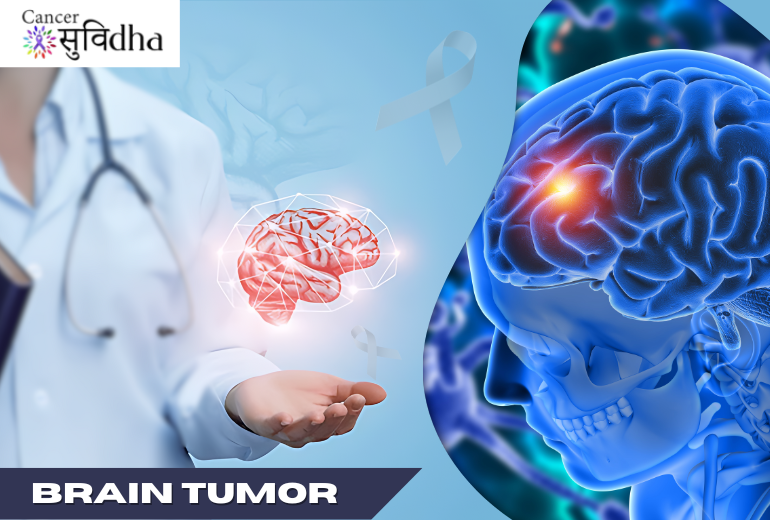Service Detail

Brain Cancer
Brain Cancer Specialist Doctor in Delhi
Brain cancer occurs when abnormal growth of brain cells in the brain begins to happen in a harmful manner. This uncontrolled growth of cells leads to the formation of a brain tumor, which can be either benign (non-cancerous) or malignant (cancerous). Brain tumors can originate within the brain itself or spread from the spinal cord to the brain, both leading to the development of brain cancer. Regardless of whether a brain tumor is benign or malignant, it must be taken seriously due to the brain's critical role as the central organ controlling all other organs and systems in the body.
Stages of Brain Cancer
Brain cancer progresses through four stages, each with its own characteristics and treatment options:
Stage 1:
In the first stage, the brain tumor is typically slow-growing and localized, meaning it has not yet spread to other parts of the brain. This stage is often treatable through surgery, where the tumor can be removed by opening the skull. Chemotherapy and radiation therapy are also viable treatment options at this stage, and with appropriate care, the patient’s prognosis is generally positive.
Stage 2:
In this stage, the tumor begins to grow and spread more noticeably. The cancer cells start appearing more abnormal and may begin spreading to other parts of the brain or body. If not diagnosed and treated promptly, the tumor continues to grow, increasing the risk of severe complications. Chemotherapy remains a possible treatment option during this stage.
Stage 3:
By the third stage, the tumor becomes highly aggressive, with cancer cells appearing very abnormal and spreading rapidly to surrounding brain tissues. This significantly impairs brain function, leading to symptoms such as loss of coordination, difficulty maintaining balance, and neurological symptoms like fever and vomiting. Radiation therapy is typically recommended at this stage to manage the spread of the tumor.
Stage 4:
Stage 4 is the terminal stage of brain cancer, where the cancer cells grow uncontrollably and spread throughout the body. At this point, the damage is extensive, and the cancer is difficult to treat, even with aggressive interventions such as chemotherapy, radiation therapy, and laser therapy. Unfortunately, survival rates are low at this stage, and treatment often focuses on palliative care to manage symptoms and improve the quality of life.
Symptoms of Brain Cancer
The symptoms of brain cancer can vary depending on the type, severity, size, and location of the tumor. Each patient's experience may differ, but common symptoms include:
- Nausea and vomiting
- Lack of coordination and balance
- Difficulty walking and thinking
- Speech problems
- Vision disturbances
- Personality changes
- Abnormal eye movements
- Seizures
- Muscle jerking or twitching
- Persistent drowsiness
- Numbness or tingling in the arms or legs
- Unexplained fainting (syncope)
- Morning headaches that worsen over time
- Memory loss
These symptoms can range from mild to severe. If you or someone you know is experiencing any of these symptoms, it is crucial to consult a doctor immediately for a thorough evaluation and appropriate treatment.
Treatment of Brain Cancer
The treatment of brain cancer typically involves a combination of the following approaches:
- Surgery: To remove the tumor or as much of it as possible.
- Radiation Therapy: To target and destroy cancer cells in the brain.
- Targeted Drug Therapy: To attack specific cancer cells with minimal damage to normal cells.
- Chemotherapy: To kill or slow the growth of cancer cells throughout the body.
- Radiosurgery: A non-invasive procedure that uses focused radiation to target and destroy tumors.
Each treatment plan is tailored to the individual patient, considering factors such as the tumor’s location, size, stage, and overall health of the patient.
